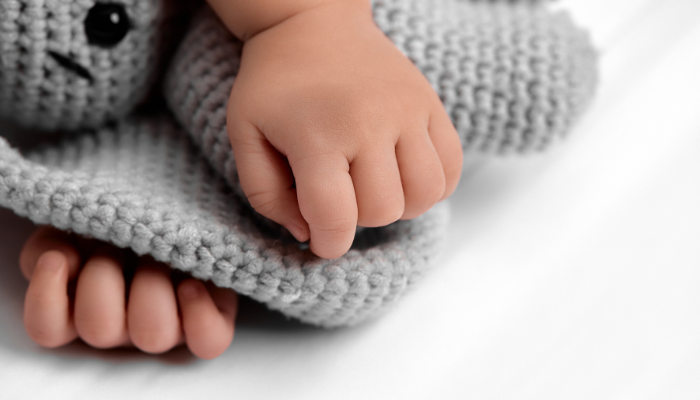Baby sleep is far more than a time of rest; it’s a complex and dynamic process that directly impacts every aspect of an infant’s growth. For parents, ensuring their little one gets the right amount of sleep can sometimes feel like a daunting challenge, especially when juggling feeding schedules, developmental milestones, and the unpredictability of a baby’s sleep patterns. Yet, the importance of sleep cannot be overstated.
Sleep plays a critical role in supporting a baby’s rapidly developing brain. During the first few years of life, a baby’s brain grows more quickly than at any other time, forming millions of neural connections every second. This extraordinary growth depends heavily on quality sleep, as it’s during these periods of rest that the brain consolidates memories, processes experiences, and strengthens its capacity for learning.
Cognitive development—encompassing everything from learning to communicate to developing problem-solving skills—is deeply influenced by how much and how well a baby sleeps. Emotional well-being is also tied to rest, as sleep supports a baby’s ability to manage stress, recognize emotions, and build strong bonds with caregivers.
Understanding the science behind baby sleep helps parents create a nurturing environment where their child’s brain can thrive. From establishing sleep routines to addressing common challenges, the more parents know, the better equipped they are to guide their baby through these crucial early years.
The Role of Baby Sleep in Brain Development
How Sleep Fuels Cognitive Growth
Baby sleep is not passive—it’s an active process where critical work is happening within the brain. Babies spend much of their sleep in REM (rapid eye movement) cycles, a state of heightened brain activity that aids in:
- Neural Growth: Synapses, or connections between brain cells, are formed at lightning speed during REM sleep. These connections enable everything from basic motor skills to complex thought processes.
- Memory Consolidation: While awake, babies absorb information about their world, but it’s during sleep that their brain organizes and stores these memories. For instance, a baby learning to recognize a caregiver’s face or a favorite toy relies on sleep to make those associations permanent.
- Emotional Development: Sleep helps regulate the parts of the brain responsible for processing emotions. Well-rested babies are better equipped to handle new experiences and build emotional bonds with their caregivers.
Without adequate sleep, these processes are disrupted, potentially delaying critical milestones and affecting a baby’s ability to thrive.
Sleep and Cognitive Milestones
Babies grow and change rapidly during the first few years, reaching significant cognitive milestones at every stage. Sleep acts as a support system for these achievements, providing the brain with the resources it needs to adapt and evolve.
1. Language Acquisition
Babies begin learning language long before they speak their first word. From birth, they’re listening to the sounds, rhythms, and patterns of speech. During sleep, their brain processes this auditory input, helping them recognize words and syllables. Research shows that babies who get sufficient sleep are more likely to babble, mimic sounds, and eventually form words earlier than their sleep-deprived peers.
2. Problem-Solving Skills
Every day, babies engage in little experiments, like figuring out how to grasp a toy or roll onto their tummy. These problem-solving experiences are cemented during sleep. Naps and nighttime sleep allow their brain to replay and refine these skills, which explains why babies often master new abilities after periods of quality rest.
3. Social Interaction and Emotional Growth
Recognizing faces, interpreting smiles, and forming attachments are critical social milestones. Sleep enhances a baby’s ability to process social cues and develop emotional resilience. For example, a well-rested baby is more likely to respond positively to a caregiver’s affection and less likely to exhibit signs of distress.
4. Sensory Processing
From the textures they touch to the colors they see, babies are constantly processing sensory information. Sleep allows the brain to organize and interpret these inputs, enabling better coordination and awareness of their surroundings.

Common Challenges with Baby Sleep
Baby sleep is often unpredictable, and parents may encounter several hurdles as they navigate their child’s evolving sleep needs. While these challenges can be exhausting, understanding their root causes can help parents manage them more effectively.
1. Sleep Regressions
Sleep regressions are temporary disruptions in a baby’s sleep routine, often linked to developmental leaps. These regressions typically occur around 4 months, 8–10 months, and 18 months. Each stage corresponds to a significant cognitive or physical milestone:
- 4-Month Regression: Babies become more aware of their surroundings, making it harder for them to settle down.
- 8–10 Month Regression: Crawling and pulling up to stand can disrupt sleep as babies practice these new skills, even in their crib.
- 18-Month Regression: Separation anxiety and a growing sense of independence can lead to resistance at bedtime.
2. Frequent Night Wakings
Waking up during the night is common for babies, especially in the first year. Causes include:
- Hunger, especially for newborns.
- Discomfort from teething or illness.
- Environmental disturbances, like noise or changes in temperature.
Although frustrating, night wakings are often a normal part of baby sleep and tend to decrease as babies grow.
3. Difficulty Falling Asleep
Some babies struggle to settle themselves to sleep, leading to frustration for both the baby and their parents. Common reasons include overstimulation before bedtime, inconsistent routines, or reliance on external soothing methods like rocking or feeding to sleep.
4. Short Naps
Babies often take shorter naps than parents expect, especially in the first few months. Short naps can occur due to:
- Underdeveloped sleep cycles.
- Difficulty transitioning from light to deep sleep.
How Parents Can Support Healthy Baby Sleep
Helping your baby get the right amount of sleep involves thoughtful routines and a nurturing environment. Here are some practical tips to encourage quality baby sleep:
- Establish a consistent bedtime routine: A soothing sequence of activities—like bathing, reading, and singing—signals to your baby that it’s time to wind down.
- Stick to a sleep schedule: Consistent nap and bedtime hours help regulate your baby’s internal clock.
- Create a comfortable sleep environment: Use blackout curtains, white noise machines, and a crib with a firm mattress to reduce disturbances.
- Promote active days: Ensure your baby gets plenty of playtime and exposure to natural light during the day, which helps differentiate day and night.
- Look for sleep cues: Signs like yawning, eye-rubbing, or fussiness indicate your baby is ready for sleep. Act quickly to avoid overtiredness.
- Encourage self-soothing: Gradually teach your baby to fall asleep independently by allowing brief periods of fussing before intervening.
The Impact of Poor Sleep on Cognitive Development
Sleep deprivation doesn’t just lead to crankiness—it can have more profound effects on a baby’s development:
- Delayed Learning: Poor sleep disrupts the brain’s ability to consolidate memories, making it harder for babies to retain new skills.
- Emotional Dysregulation: Sleep-deprived babies are more likely to experience mood swings and have difficulty calming themselves.
- Weakened Immune System: Sleep supports overall health, and babies who don’t get enough rest may become more susceptible to illnesses.
- Reduced Attention Span: A tired baby may struggle to focus on toys, caregivers, or new experiences, limiting their learning opportunities.
By prioritizing baby sleep, parents can ensure their child is well-equipped to reach critical milestones and thrive in their environment.

The Long-Term Benefits of Healthy Sleep Habits
The positive effects of quality sleep extend far beyond infancy, laying the groundwork for success in childhood and beyond. Here’s how healthy baby sleep habits influence long-term outcomes:
- Better Academic Performance: Children who develop good sleep habits early on often perform better in school, as sleep enhances memory, attention, and problem-solving skills.
- Improved Emotional Health: A strong foundation of restful sleep supports emotional resilience, helping children handle stress and form healthy relationships.
- Physical Growth: Growth hormones are released during deep sleep, contributing to optimal physical development.
- Lifelong Sleep Patterns: Establishing a consistent sleep routine in infancy sets the stage for healthy sleep behaviors that last a lifetime.
By fostering healthy sleep habits early, parents give their baby a significant advantage in their cognitive, emotional, and physical development.
Conclusion: Baby Sleep Is Key to Development
Baby sleep is a cornerstone of early childhood development. From shaping the brain’s architecture to supporting emotional health and social skills, the effects of quality sleep are profound and far-reaching. As parents, you have the power to create an environment where your baby can thrive, both during wakeful hours and while they sleep.
By understanding the science behind baby sleep, you can guide your child through their most formative years with confidence. Remember, the time and effort you invest in your baby’s sleep today will pay dividends for their future growth and success.
Read Our Latest Article: Creative Thanksgiving Traditions to Start with Your Kids This Year
Follow us
